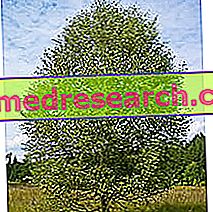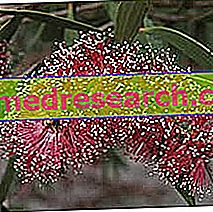
Scientific name
Betula alba L., Betula pubescensFamily
BetulaceaeOrigin
Nordic countries and cold climates. Birch grows well in Italy above 700 meters above sea level.
Birch is a tree native to Eurasia, with the largest trunk and branches covered with white bark that flakes in strips.
Used Parts
Drug consisting of leaves, buds and birch bark.Chemical constituents
- Tannins;
- Essential oil (also containing methyl salicylate which gives it antiseptic properties);
- Flavonoids (hyperoside and quercetin);
- Monoterpenic glycosides;
- Triterpene saponins;
- C vitamin;
- Caffeic acid and its derivatives (including chlorogenic acid);
- proanthocyanidins;
- Betuloretic acid.
Birch Tree in Herbal Medicine: Birch Properties
Birch is a phytotherapic used efficiently as a diuretic, which is combined with anti-inflammatory virtues.
Birch extracts, infusions and tinctures are indicated in the premenstrual syndrome, in the prevention of kidney stones and renella, in edema due to heart failure, in the presence of arterial hypertension, ascites, vertigo, but also of edema of the lower limbs due to insufficient venous and cellulite.
Biological activity
Although there are no officially approved therapeutic indications for birch, this plant is mainly used in infusions, extracts and dyes for its diuretic activity.
This activity has however been confirmed by studies conducted in this regard and is ascribed to the presence of flavonoids (in particular to quercetin), which seems to contribute to accelerating the formation of urine.
Furthermore, anti-inflammatory and antibacterial properties are ascribed to birch, which are mainly found in the urinary tract.
In this regard, a randomized, double-blind, placebo-controlled pilot study was conducted in which fifteen patients with lower urinary tract infections were treated for four days with four cups of herbal tea made from birch leaves or with herbal tea placebo ( W. Birkenblättertee (Betulae folium) gegen Infekte der unteren Harnwegw - eine Pilotstudie ).
The microbial levels in the urine of the birch-treated group recorded a 39% decrease compared to 18% in the placebo group, thus confirming the antibacterial activity traditionally ascribed to this plant.
Birch in folk medicine and homeopathy
In folk medicine, the birch leaves used internally are used as a remedy to purify the blood and to treat gout and rheumatism.
Externally, however, birch leaves are used to counteract hair loss and dandruff.
In traditional medicine, birch tar is also used which - applied to the skin - is used against eczema, rheumatism, psoriasis, gout and skin parasites, among which we also find scabies.
Another use that is not approved, but in any case widely used, is precisely that which involves using birch to exploit its diuretic properties.
Generally, it is recommended to take 2-3 g of vegetable drug (dried leaves) several times a day, or the corresponding amount of the various preparations. For example, if dyeing is used (1:10), the usually recommended dose is about 2 ml three times a day; while if fresh juice is used, a dose of 15 ml is usually recommended three times a day.
Birch is also used in homeopathic medicine. It is readily available in the form of granules with indications for the treatment of rheumatism, arthrosis, joint pain, gout, urinary tract infections and is even used as a remedy for sexual impotence.
The amount of remedy to be taken can be different for each individual, also depending on the type of homeopathic dilution that is intended to be used.
Birch Tree in Herbal Medicine - MypersonaltrainerTv Videos
Watch the video
X Watch the video on youtubeSee also: birch in cosmetics
Contraindications
The intake of birch-based preparations is contraindicated in case of allergy to aspirin (due to the presence of salicylates), heart failure, and renal failure and established hypersensitivity to one or more components.
Pharmacological Interactions
- barbiturates;
- alcohol;
- diuretics;
- hypotensive;
- antiplatelet agents;
- anticoagulants;
- gastrolesive drugs;
- methotrexate.
Warnings
Salicylates pass into breast milk with possible allergic reactions in the child; it is therefore important to avoid the use of birch during pregnancy and lactation.



